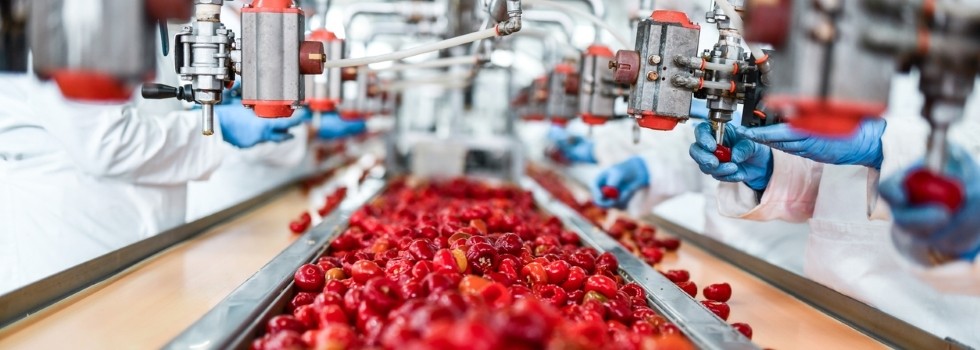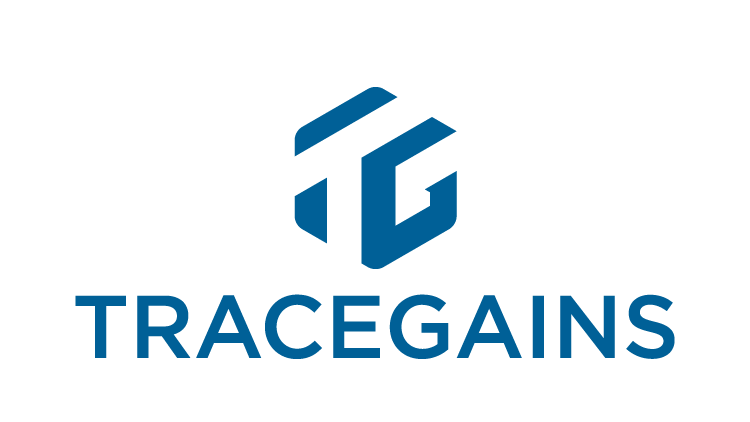Promotional Features
As inflation drives Britons to private labels, brands turn to co-manufacturing
With the UK's current food inflation and cost of living crisis, Denis Storey of Tracegains outlines the benefits and potential pitfalls to brands of contract manufacturing.
Food, beverage, and dietary supplement companies have increasingly turned to co-manufacturers (co-mans) over the last decade – even before a global pandemic shook the supply chain to its core. Brands that establish successful co-man partnerships can work around persistent labour shortages, develop new products faster, and get all their products onto store shelves more efficiently.
While private-label sales fell across most of Europe in 2021, the region remains one of the world’s biggest private-label markets globally. And the UK emerged as one of the few countries in the region to see growth, even at a modest 0.3%, and still leads the way, with private labels taking up more than a 50% market share.
But inflation has hit UK consumers harder than most in 2022 – reaching 9% in April, before dipping down to 8.3% in June – forcing shoppers to start picking up more price-friendly private-label options. Reuters recently reported that some analysts expect food inflation to peak as high as 15% before the year is over.
In August, market research firm Kantar reported that grocery price inflation hit 11.6%, the highest mark in more than a decade. The researchers revealed that butter, milk and poultry saw the highest price increases.
“This rise means that the average annual shop is set to rise by a staggering £533, or £10.25 every week, if consumers buy the same products as they did last year,” Kantar head of retail and consumer insight Fraser McKevitt wrote in a blog post. “It’s not surprising that we’re seeing shoppers make lifestyle changes to deal with the extra demands on their household budgets. Own-label ranges are at record levels of popularity, with sales rising by 7.3% and holding 51.6% of the market compared with branded products, the biggest share we’ve ever recorded.”
Both private-label and branded organisations are leveraging contracted networks as part of their innovation and growth strategies. But landing on the right co-man partner isn’t as simple as it might sound; the decision can make or break an opportunity. And not all co-mans are created equally, so it’s critical to align organisational goals with the capabilities of the potential contracted site.
Types of co-mans
● Private-label manufacturers: These manufacturers assume responsibility for the entire manufacturing process based on the design, pricing, and technical requirements you provide. Think Tesco, Britain’s largest retailer.
● Component-specific manufacturers: These operators typically produce one or more of the components of the finished good. The parent company then assumes final production and/or assembly. These manufacturers are more prevalent in the tech sector.
● Subcontractors: Even the most robust general contractors need to outsource some functions to another contractor for other, smaller component production. Consider them co-mans of the co-mans. This typically happens when a labour shortage forces the general contractor to turn to another vendor for more labour-intensive projects.
● End-to-end contractors: Not unlike private label contractors, these co-mans function more as consultants for design and other related operations for finished goods production. This is an ideal solution for companies not as experienced with mass production but which still need to turn around a production quickly.
Benefits of co-mans
Working with a co-man can help brands get better traction in markets outside a company’s core competency. Some common strategies include using a co-man to allow a brand to ramp up the capacity of its existing product mix, mitigate the risks associated with developing new products, or even cut the time to market on launching new or reformulated products.
Some key benefits of leveraging a co-man include:
● Focus on core competencies: By working with a co-man that has an established manufacturing infrastructure, brands can focus their resources on more strategic business initiatives, whicg align with the organisation’s core competencies. Many start-ups move toward co-mans to spend more time and resources on marketing and sales to help grow their brands.
● Agility: A brand can pivot quickly as market conditions change. Brands don’t have to commit large amounts of capital to manufacturing assets and organisational infrastructure. If the market shifts and demand plummets, you aren’t as exposed to the financial risk. Conversely, if market demand surges, brands can leverage the co-man as a capacity builder and supply chain optimizer, with several contracted sites in high-demand regions.
● Product development and improvement: Some co-mans provide research and development services to help brands formulate products, tweak existing SKUs for better performance, or rein in rising ingredient costs.
Potential risks
But no business model is without risks and working with a co-man isn’t exempt.
● Brand reputation: It’s important to remember that you’re entrusting your brand’s reputation with a third party. Understanding the co-man’s performance from regulatory and market standpoints are critical data points when determining the right fit for your organisation.
● More work: Additionally, contracted facilities are not a ‘set it and forget it’ situation. They demand time and resources to manage properly. Collaboration and communication remain fundamental tenets of building a trusting relationship to help facilitate the desired outcome. You must ensure the external site is appropriately managing critical control points.
● Size matters: The scope of your organisation and the capacity a co-man site can handle will dictate the terms of the relationship. Smaller brands risk losing their place on the schedule if a co-man must accommodate a larger customer that suddenly needs increased capacity. So, it’s always a good idea to line up back-up contract facilities in the pipeline to help mitigate this risk.
It’s all about trust
Trust is the foundation for a successful co-man relationship – building it and keeping it. Kenny Strine, corporate quality manager – external manufacturing at Lassonde Pappas, has managed small and large external networks throughout his career.
“Driving consistent positive outcomes from an external network hinges on a relationship that’s rooted in trust and fostered by communication and collaboration,” Strine explains.
He is quick to list five keys to co-man success:
1. Create transparency and listen first
2. Confront reality
3. Clarify expectations
4. Extend trust
5. Deliver results
Ultimately, the biggest challenge in setting up a contract manufacturer for success is fostering strong communication and collaboration focused on core business needs.
About TraceGains
TraceGains offers the industry’s only purpose-built solution to help brands better work with contract manufacturers. And its proven compliance solution suite digitises and standardises food manufacturers' ingredient supply chains, allowing them to request, modify, and exchange documents with their supply chain partners on a single platform. Better yet, finished goods specifications stored digitally make collaboration a breeze and mistakes a thing of the past, says the company.
To find out more about TraceGains, contact Dan McGlynn on +44 (0)113 868 1212 or visit www.tracegains.com.






